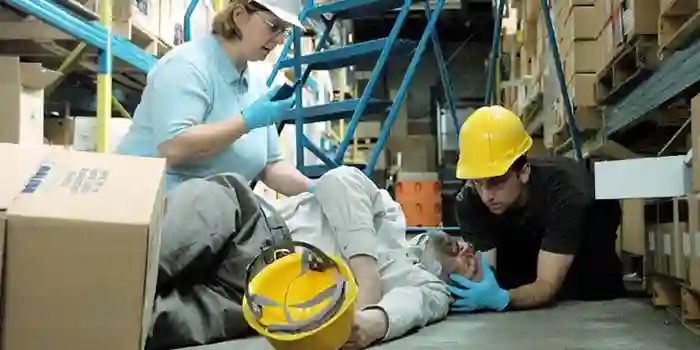In an ever-changing world filled with uncertainties, being prepared for critical incidents is essential. Whether you’re at home, in the workplace, or in a public setting, having the knowledge and skills to provide critical incident first aid can make a life-saving difference. The Rapid Care Workshop is designed to equip individuals with the essential skills needed to respond effectively during emergencies and critical incidents. In this article, we will explore the importance of critical incident first aid skills, the key components of the Rapid Care Workshop, and the benefits of such training.
The Significance of Critical Incident First Aid Skills
Critical incidents encompass a wide range of unexpected and potentially life-threatening situations, including accidents, medical emergencies, natural disasters, and acts of violence. Being able to provide immediate assistance in these scenarios can significantly impact the outcome and improve the chances of survival. Here’s why critical incident first aid skills are so crucial:
- Lifesaving Potential: In critical incidents, time is of the essence. Knowing how to assess and address life-threatening injuries or conditions promptly can save lives.
- Injury Mitigation: Even if a situation is not life-threatening, immediate care can help reduce the severity of injuries, prevent complications, and improve long-term outcomes.
- Enhanced Confidence: Being trained in critical incident first aid instills confidence in individuals, enabling them to take action when needed instead of feeling helpless.
- Community Resilience: When a community is equipped with individuals who possess critical incident first aid skills, it becomes more resilient and better prepared to handle emergencies collectively.
- Reduced Healthcare Burden: By providing immediate care, individuals can alleviate the burden on healthcare systems, allowing medical professionals to focus on more critical cases.
Key Components of the Rapid Care Workshop
The Rapid Care Workshop is a comprehensive training program designed to equip participants with critical incident first aid skills. Its key components include:
Basic Life Support (BLS):
-
- CPR (Cardiopulmonary Resuscitation): Training on how to perform CPR effectively in adults, children, and infants.
- AED (Automated External Defibrillator): Instruction on the use of AED devices to deliver life-saving shocks in cases of cardiac arrest.
Trauma Management:
-
- Bleeding Control: Techniques for controlling severe bleeding, including the use of tourniquets and hemostatic agents.
- Wound Dressing: Proper wound cleaning and dressing to prevent infection.
- Fracture Management: Immobilization and splinting of fractures and dislocations.
- Burn Care: First aid measures for thermal, chemical, and electrical burns.
Medical Emergencies:
-
- Stroke and Heart Attack: Recognizing the signs and symptoms of stroke and heart attack, and appropriate initial responses.
- Allergic Reactions: How to administer epinephrine (EpiPen) for severe allergic reactions.
- Seizures: How to provide care and support to someone experiencing a seizure.
Psychological First Aid:
-
- Recognizing Psychological Distress: Identifying signs of psychological distress in individuals affected by critical incidents.
- Providing Emotional Support: Techniques for offering immediate emotional support and reassurance.
- Referral and Resources: Guiding individuals to appropriate mental health resources when needed.
Emergency Response and Scene Safety:
-
- Scene Assessment: Evaluating the safety of the scene before providing care.
- Calling for Help: Effective communication with emergency services and providing essential information.
- Personal Safety: Ensuring the safety of the first aider and bystanders during the response.
Practical Hands-On Training:
-
- Participants engage in hands-on exercises and scenarios to practice critical incident first aid skills in a controlled environment.
- Simulations and role-playing to enhance learning and build confidence in responding to real-life situations.
Benefits of the Rapid Care Workshop
Participating in the Rapid Care Workshop offers a wide range of benefits for individuals, communities, and organizations:
- Lives Saved: Equipping individuals with critical incident first aid skills can directly save lives in emergencies and critical incidents.
- Reduced Severity of Injuries: Immediate care can mitigate the severity of injuries, reducing long-term complications and recovery time.
- Increased Confidence: Participants gain the confidence to act decisively in emergencies, making them valuable assets in their communities.
- Community Resilience: Communities with trained individuals are better prepared to respond collectively to emergencies, enhancing overall resilience.
- Reduced Healthcare Burden: Providing initial care on the scene can reduce the strain on healthcare systems and help prioritize resources for critical cases.
- Workplace Safety: Employers benefit from having employees trained in critical incident first aid, promoting workplace safety and compliance with regulations.
- Personal Preparedness: Individuals who undergo training are better prepared to handle emergencies not only in the workplace but also in their daily lives.
- Public Safety: Trained individuals can positively impact public safety by assisting in various emergency situations, including accidents and sudden illnesses.
Conclusion
The Rapid Care Workshop plays a vital role in equipping individuals with the critical incident first aid skills needed to respond effectively to emergencies. In a world where unexpected events can occur at any time and place, being prepared can make all the difference between life and death. By providing training in BLS, trauma management, medical emergencies, and psychological first aid, the workshop empowers participants to take immediate action when faced with critical incidents. Ultimately, this training not only benefits individuals but also enhances community resilience and contributes to public safety. Embracing the Rapid Care Workshop is an investment in a safer, more prepared, and resilient society.



